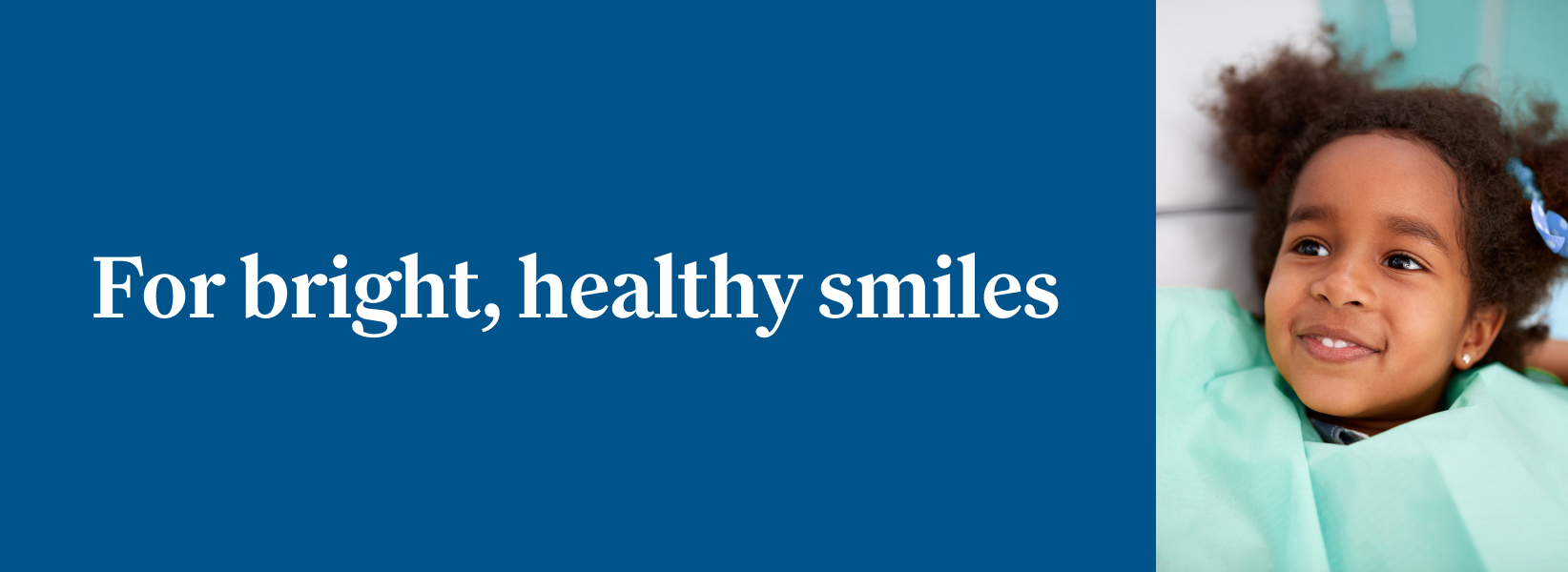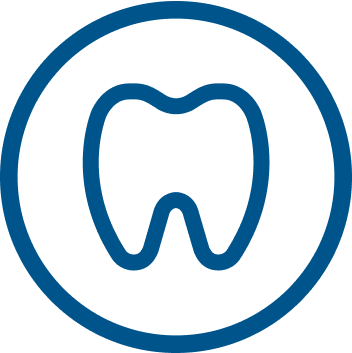
Dental care & oral health
Getting dental care and practicing daily oral hygiene—brushing and flossing—are keys to good oral health. And keeping teeth and gums healthy lowers the risk of future issues like gum disease and pneumonia.
YouthCare covers dental exams and teeth cleaning twice each calendar year. Coverage also includes dental care like:
- Extractions
- Fillings, crowns, and other restorations
- Oral surgery
And there may be help for members who need additional care, like braces. Contact the member’s GuidedCare Care Coordinator to learn more.
Use our Find a Provider tool to find in-network dentists near you. Or call Member Services at 844-289-2264 (TTY: 711).
Members can get free rides to their dental appointments. Annual dental checkups can earn a $20 reward, too. Find out more about My Health Pays® rewards.

Overcoming fear of the dentist
Whether a member is going to the dentist for the first time or going back after a few years away, there are tips that can help make dental care less scary.
YouthCare covers dental exams and teeth cleaning twice each calendar year. Coverage also includes dental care like:
- Let the dentist know about any fears or concerns at the beginning of the appointment
- Schedule the appointment when the office says they’re not so busy—like a weekday morning
- Accompany the member to the exam room to provide comfort and support
YouthCare also covers practice visits to help young children, and those with special needs, work on their fear of the dentist. Contact the member’s Care Coordinator or Member Services to learn more.
Tips for daily oral care at home—for every age
- Before teeth appear
- Clean a baby’s mouth two times a day, after first feeding and before bed. Wipe the gums with a clean washcloth to remove bacteria and sugar.
- Avoid putting a baby to bed with a bottle of milk or juice. Milk or juices can pool around teeth and cause severe decay.
- Once teeth come in
- Brush a baby’s teeth two times a day with a small, soft-bristled toothbrush and water.
- By baby’s first birthday
- Visit a dentist to spot any problems early on.
- Talk with the dentist about using a fluoride-based toothpaste and receiving a fluoride application on a baby’s teeth.
Additional resources
- Brush two times a day.
- Brushing in the morning and right before bed makes dental care a healthy habit. Use fluoride toothpaste and a soft toothbrush.
- Proper brushing means taking time and using gentle, circular motions. Gently brushing the tongue also helps oral health.
- Remember to floss.
- Flossing once a day will remove food particles and reduce plaque.
- Use mouthwash.
- Mouthwash can help reduce acid in the mouth. It can clean hard-to-brush areas and strengthen teeth.
- Replace toothbrushes every season of the year.
- Bristles can wear down, so get a new toothbrush every three to four months. Go to findhelp for local sources of free toiletries.
- Eat a healthy diet.
- Avoid habits that can hurt oral health, like frequent between-meal snacking and eating foods with added sugars.
- Visit the dentist regularly.
- The dentist can look for cavities and potential problems. Children should go to the dentist twice a year for cleanings and checkups.
Additional resources
- Brush two times a day.
- Brushing in the morning and right before bed makes dental care a healthy habit. Use fluoride toothpaste and a soft toothbrush.
- Proper brushing means taking time and using gentle, circular motions. Gently brushing the tongue also helps oral health.
- Remember to floss.
- Flossing once a day will remove food particles and reduce plaque.
- Use mouthwash.
- Mouthwash can help reduce acid in the mouth. It can clean hard-to-brush areas and strengthen teeth.
- Replace toothbrushes every season of the year.
- Bristles can wear down, so get a new toothbrush every three to four months. Go to findhelp for local sources of free toiletries.
- Eat a healthy diet.
- Avoid habits that can hurt oral health, like frequent between-meal snacking and eating foods with added sugars.
- Visit the dentist regularly.
- The dentist can look for cavities and potential problems. Children should go to the dentist twice a year for cleanings and checkups.
- Avoid tobacco use.
- All forms of tobacco, including cigarettes and smokeless tobacco, cause oral cancer, gum disease, and other oral health problems.
Additional resources
- Brush two times a day.
- This is the best way to prevent bad bacteria from growing in your mouth. Without brushing, the bad bacteria can be passed on to your baby.
- Floss daily.
- Floss at least once a day to remove food particles and plaque that can lead to cavities and gum disease.
- Take care of yourself when you have morning sickness.
- Rinse your mouth with 1 tsp of baking soda in a glass of water after you get sick. This helps wash away acid and keep your tooth enamel safe.
- See a dentist before you deliver.
- You may be more prone to gum disease and cavities when you're pregnant. These can be passed on to babies and affect their health.
- Seeing a dentist while pregnant is totally safe. It’s good to get this done before you are busy with your new baby.
Additional resources
- Brush daily
- You may need to modify the toothbrush to accommodate the member’s physical limitations. Or the caregiver may need to brush the member’s teeth.
- Floss regularly
- Flossing may be a challenge. Look for aids like floss holders or floss picks. Or, the caregiver may need to floss the member’s teeth.
- Take care of yourself when you have morning sickness.
- Rinse your mouth with 1 tsp of baking soda in a glass of water after you get sick. This helps wash away acid and keep your tooth enamel safe.
- Visit a dentist regularly
- Regular cleanings and exams are an important part of maintaining good oral health.
- It may take time for the member to become comfortable at the dentist’s office.
- A practice visit with no treatment provided is a good idea. It may help the person feel more comfortable with the office and exam before a real visit. YouthCare covers practice visits.
Additional resources
